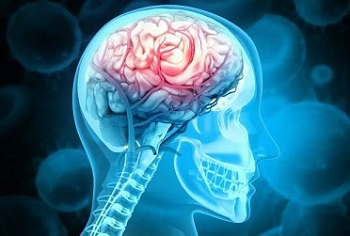BREAKING! SARS-CoV-2 Infection Induces Long-Lasting B1R Expression In The Brain, Driving Neuroinflammation And Neuropsychiatric Symptoms!
Thailand Medical News Team Aug 21, 2023 2 years, 5 months, 3 weeks, 3 days, 6 hours, 21 minutes ago
COVID-19 News: The impact of the SARS-CoV-2 virus, responsible for COVID-19, has extended beyond the initial acute infection phase. Many individuals, even those who experienced mild COVID-19 symptoms, have reported lingering neurological and neuropsychiatric symptoms that persist long after recovery. These have been documented in various studies case reports and
COVID-19 News coverages. These post-recovery symptoms, collectively referred to as long COVID or post-acute sequelae of SARS-CoV-2 infection (PASC), have raised important questions about the underlying mechanisms. A recent study conducted by researchers at East Carolina University, USA, has shed light on potential mechanisms by studying a mouse model that replicates the long-term effects of SARS-CoV-2 infection on the brain.
 The Complexity of Long COVID Symptoms
The Complexity of Long COVID Symptoms
COVID-19 symptoms can vary widely, ranging from asymptomatic cases to severe respiratory distress and multi-organ failure. A subset of patients, referred to as long COVID patients, continue to experience symptoms like fatigue, cognitive problems, anxiety, and depression long after the acute infection phase has passed. Understanding why some individuals experience these persistent symptoms while others do not has proven to be a challenge due to the multifaceted nature of the disease and the presence of confounding factors.
The Role of SARS-CoV-2 in Brain Inflammation
One of the intriguing aspects of long COVID is the presence of neurological and neuropsychiatric symptoms. Evidence suggests that the SARS-CoV-2 virus can enter neural tissue, potentially contributing to brain-related symptoms. However, the exact mechanisms behind this phenomenon remain unclear. The study from East Carolina University focused on understanding the relationship between SARS-CoV-2 infection and brain inflammation, as well as its impact on behavior.
Utilizing a Mouse Model to Mimic Long COVID
To investigate the long-term effects of SARS-CoV-2 infection, the study team used a mouse model that expressed human ACE2, the receptor that the virus uses to enter cells. These mice exhibited a wide range of disease severity, which allowed researchers to simulate the spectrum of COVID-19 symptoms observed in humans, from mild to severe. By infecting these mice with the virus, the researchers could study the potential impacts on brain tissue and behavior.
Unraveling the Mechanisms: The Kinin B1 Receptor (B1R) Connection
The study focused on a specific aspect of inflammation known as the kinin-kallikrein system (KKS). This system involves the production of peptides called kinins, which can influence inflammation and other physiological responses. One particular receptor, called the kinin B1 receptor (B1R), is associated with pro-inflammatory effects. The researchers hypothesized that SARS-CoV-2 infection could lead to the induction of B1R expression, potentially driving brain inflammation and contributing to long COVID symptoms.
Key Findings and Implications
The results of the study revealed several significant findings:
-&l
t;strong>Brain Inflammation: Mice that recovered from SARS-CoV-2 infection, even mild cases, exhibited persistent brain inflammation. This suggests that the virus has the potential to affect brain tissue even after the acute infection has subsided.
-B1R Expression: The study team observed elevated expression of the pro-inflammatory B1R in brain regions associated with anxiety, memory, and cognitive function. This finding indicates that B1R might play a crucial role in mediating the chronic inflammation observed in long COVID.
-
Behavioral Changes: The mice that had recovered from mild SARS-CoV-2 infection displayed altered behavior, including increased anxiety and changes in exploratory behavior. These behavioral changes mirrored some of the neuropsychiatric symptoms reported by long COVID patients.
Implications for Future Research: The study suggests that targeting B1R could potentially be a therapeutic strategy to mitigate the persistent inflammation associated with COVID-19. This could not only address long COVID symptoms but also reduce the risk of future neurodegenerative diseases linked to chronic inflammation.
Looking Ahead: The Promise of Animal Models
The mouse model used in this study offers valuable insights into the potential mechanisms underlying long COVID symptoms. While human studies are often complicated by diverse genetic backgrounds and confounding factors, animal models provide a controlled environment to study specific aspects of the disease. Further research is needed to fully understand the relationship between SARS-CoV-2 infection, brain inflammation, and the resulting cognitive and neuropsychiatric symptoms.
As our understanding of long COVID continues to evolve, studies like this one pave the way for targeted therapies and interventions that could improve the quality of life for individuals dealing with persistent symptoms. By exploring the connections between the virus and brain inflammation, researchers move closer to unraveling the complexities of long COVID and offering hope for those who are experiencing its lingering effects.
The study findings were published in the peer reviewed journal: Cells.
https://www.mdpi.com/2073-4409/12/16/2107
For the latest
COVID-19 News, keep on logging to Thailand Medical News.
